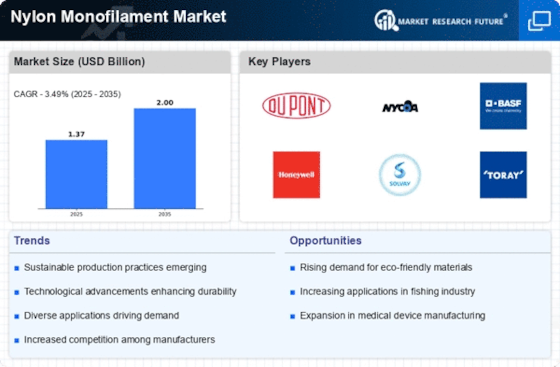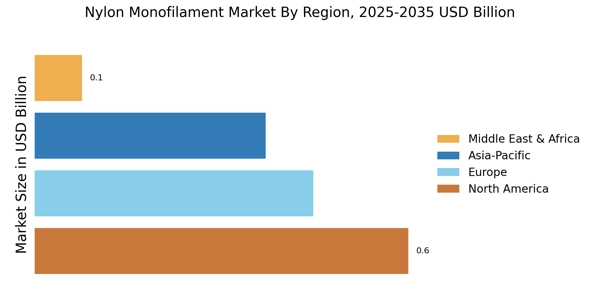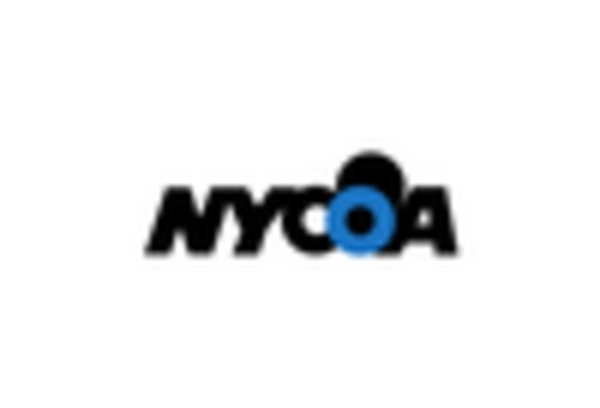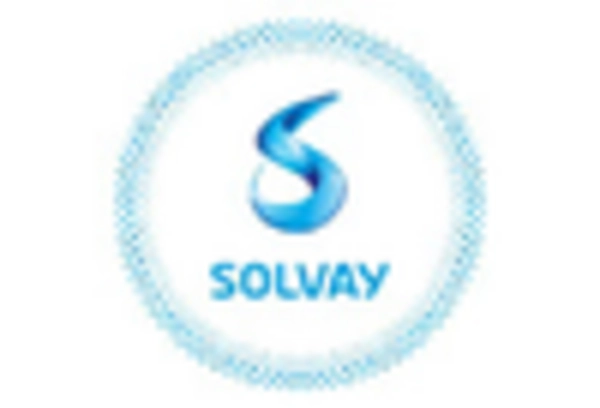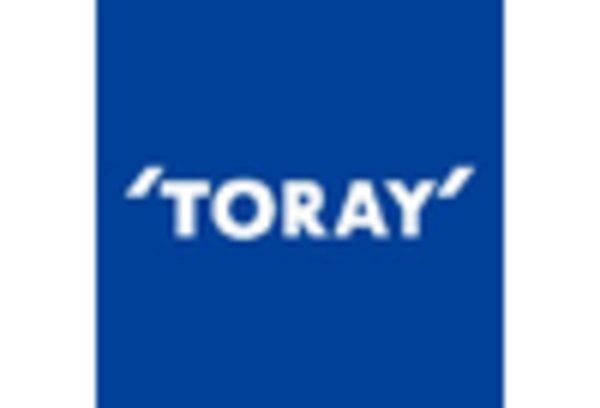Growth in Textile Applications
The Nylon Monofilament Market is witnessing significant growth due to its extensive applications in the textile sector. Monofilament fibers are increasingly utilized in the production of various textile products, including nets, ropes, and fabrics. The versatility of nylon monofilament allows for its use in both functional and decorative textiles, which is appealing to manufacturers. Market data suggests that the textile segment is expected to account for a substantial share of the overall nylon monofilament market, driven by the rising demand for lightweight and durable materials. Additionally, the trend towards sustainable textiles is prompting manufacturers to innovate and develop eco-friendly nylon monofilament products, further propelling market growth. This evolution in textile applications is likely to enhance the competitive landscape of the Nylon Monofilament Market.
Rising Demand in Fishing Industry
The Nylon Monofilament Market is experiencing a notable surge in demand, particularly from the fishing sector. As recreational and commercial fishing activities expand, the need for durable and reliable fishing lines has increased. Nylon monofilament, known for its strength and flexibility, is preferred for various fishing applications. Reports indicate that the fishing line segment is projected to grow at a compound annual growth rate of approximately 5% over the next few years. This growth is driven by the increasing popularity of fishing as a leisure activity, coupled with advancements in fishing gear technology. Consequently, manufacturers in the Nylon Monofilament Market are focusing on producing high-quality monofilament lines that cater to the specific needs of anglers, thereby enhancing their market presence.
Expansion in Agricultural Applications
The Nylon Monofilament Market is experiencing growth due to its expanding applications in agriculture. Monofilament products are increasingly used in agricultural nets, trellises, and other farming equipment, providing durability and strength. The rising global population and the consequent demand for food production are driving farmers to adopt innovative solutions, including nylon monofilament products, to enhance crop yield and protection. Market data suggests that the agricultural segment is poised for growth, as farmers seek reliable materials that can withstand environmental challenges. This trend is likely to encourage manufacturers in the Nylon Monofilament Market to develop specialized products tailored for agricultural use, thereby broadening their market reach and contributing to overall industry growth.
Increasing Use in Medical Applications
The Nylon Monofilament Market is also benefiting from the rising adoption of nylon monofilament in medical applications. Monofilament fibers are utilized in various medical devices, including sutures and surgical meshes, due to their biocompatibility and strength. The growing emphasis on minimally invasive surgical techniques is further propelling the demand for high-quality nylon monofilament products in the healthcare sector. Market analysis indicates that the medical segment is expected to witness a robust growth trajectory, driven by advancements in medical technology and an increasing number of surgical procedures. As healthcare providers seek reliable and effective materials for surgical applications, the Nylon Monofilament Market is likely to expand its footprint in this critical sector.
Technological Innovations in Manufacturing
Technological advancements are playing a pivotal role in shaping the Nylon Monofilament Market. Innovations in manufacturing processes, such as advanced extrusion techniques and improved polymer formulations, are enhancing the quality and performance of nylon monofilament products. These technological improvements enable manufacturers to produce monofilaments with superior tensile strength, flexibility, and resistance to environmental factors. Furthermore, the integration of automation and smart manufacturing technologies is streamlining production processes, reducing costs, and increasing efficiency. As a result, companies in the Nylon Monofilament Market are better positioned to meet the evolving demands of various end-use sectors, including fishing, textiles, and industrial applications. This focus on technological innovation is likely to drive market growth and foster competitive advantages.


